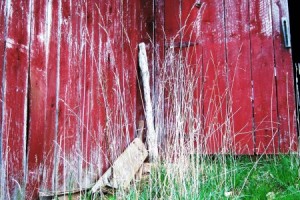Jane Ann Devol Fuller: Art rejuvenates, allows us to transcend because it won’t let us turn our eyes away. That paradox. Like the dog in your poem “Rescue Dog.” The speaker is doing what he can to save her or lessen her suffering. Still he admits, “What the fuck, and Duh, we die.” That juxtaposition of sweet love and hard acceptance frees the readers from our own grievings.
Though we know the dog won’t recover, we must. And what happens is we see how everything is connected to everything else. The Jim Jarmusch film gets us through the night, takes our focus off the dying animal and reflects our loss right back at us, so though we can’t look directly into, neither can we look away. We find elevation through references outside ourselves and our situations. Rescue refers then not only to the dog we brought home to save, and couldn’t, but to our own deliverance from self-centered matters.
We know the poem is about not just the dog’s suffering, but the speaker’s. Talk about the “objective correlative” in light of what I can quote you as saying, “show, but don’t show.”
Roy Bentley: I like to think I’m a mechanic when it comes to poems: I can “wrench the vehicle” and make it work. However, why it works—well, I leave that to others. I’d say this: I read poems that are successful and follow their lead. I am so clueless when I begin to talk about why I did what I did. Also, I keep no drafts. Why? I live in the Now of the draft I’m working on. For me, it’s that simple. And I depend on a handful of people to tell me when I am barking up the wrong tree. (Pardon the pun.) I trust hearing what other writers say works and why they think it works. Truthfully, I’m sort of a 12-year-old when it comes to giving answers about my work: I’ll be flippant, if I’m not careful. Or I’ll say something that has the same effect as farting…
JADF: In this poem, as in most of your work, you layer experience extremely efficiently. I picture concentric circles or a spiraling of events, each recursive, but expanding outward into meaning. You’ve got the dog by the fire, Jarmusch’s Stranger Than Paradise on the tube, the vet on the phone, the memory of the young boy, etc. The poem’s context is grounded in every day reality. But the reader senses a spiritual event that is wrought with varied emotions: compassion, anger, resentment, perhaps? Do you think the poem reconciles these things? And to what end?
That other good fortune
we have when whoever dispenses miracles is fresh out.
RB: To my way of thinking, what poems make happen is oftentimes a wonderful unintended consequence that we then label as magic in the absence of a better word for that. I believe in a spirit, after years of doubt and wrestling with evidence to the contrary—a process that is ongoing, to be sure. But the Unknowable is where I have to plant my flag when talking about what my poems do. Truthfully, I may be the worst person to ask. That said, it’s important to say what I do know: that spirit is spirit, whether dog or human. At least that’s my stance on that, which I hope rears its head in the poem. Animals are what they are apart from us, but they are also what they are with us. And the reverse is true for humans. That’s at the heart of the miracle.
JADF: We’ve all lost a dog. We all know what it’s like. And we are all betting on the dog….to live….to win. Jarmusch’s characters lose, like the speaker of your poem loses: the dog is going to die. But, there’s a rejuvenation in that richness and camaraderie that can’t be lost to death. I imagine this poem is almost completely autobiographical. Am I right? If so, can you talk about that a little?
RB: It is autobiographical. And true, though I’m not sure a poem has to stick to the facts as if the piece is an episode of Dragnet and Sgt. Joe Friday is leaning over our shoulder saying, Just the facts, please.
JADF: And at what point in this experience did you start writing this poem? Was it in the middle of grieving?
RB: Jupiter was not yet dead when I started the piece. In fact, the first several drafts were accomplished with him alive but declining. He lay at my feet, even as I wrote, blessing me with his panting gaze. Through that period of him fighting and then not fighting, the poem took a different shape. Then his death prompted going back to Square One. I still miss him. He was a mess—he had skin issues from the moment we got him, didn’t sleep through the night, then developed food sensitivities. He was a job in the beginning. But I did it—or my wife Gloria and I did it together, though his care and keeping fell to me at the end of the time in Florida, which was where we bonded. He got better. Not much, but enough that he could be with us.
JADF: The poem is all about recovery, and some folks see recovery as an end point, a success. Recovery is also a process that includes hard stages of grief but also epiphany, a final letting go of self. How do you define recovery in general and how do you explore it in this poem?
RB: I felt the Jim Jarmusch portion to be absolutely essential to this poem working. That was using what’s at hand, what fell to me. It’s that simple. Everything fits, if you think about it. Recovery is a fact of life. Death is, as well. But a fact of life isn’t something you can’t “bend” to fit your experience. For instance, caring for Jupiter was a kindness to an animal. Sure. But it was also something that “needed done,” a bit of work to be accomplished each day. Like writing.
JADF: Let’s get political. You write:
I hate how he has to carry the rot of 21st Century America,
Explain.
RB: It was flat statement. I risked it because disappointment shadows us all in the same way it shadowed that dog. At its best, politics is the art of setting aside disappointment and getting to work. Writing allows me to do that, even when I’ve lost hope. Caring for Jupiter, witnessing his struggles firsthand, did what nothing else could often: it gave me a path to follow after hope was gone or hadn’t yet returned. So he was a Being that I felt great pity for. And he loved me, which helped me stick with the hard work of caring for an older dog who was not going to recover.
JADF: The dog is so much more than dog, but still more than the speaker. The dog becomes all of us. Talk about that. (You can talk politics if you want though this poem transcends the realm of politics).
RB: Writing has been where I discover what to do in the absence of a way forward. The dog—and writing about the dog—is how I generated old-fashioned purpose; and in Iowa where I felt like a stranger. I wanted to let this gutsy Florida dog “live after”—which is pretty much how we do that as humans, I’m guessing: someone remembers us in whatever fashion. Maybe in a poem.
Jane Ann Devol Fuller is a graduate of the Iowa Writer’s Workshop and the co-author of a book of poems and photographs, Revenants: A Story of Many Lives. A teacher at Hocking College in Nelsonville, Ohio, she has written work published by Denver Quarterly, Pikeville Review, Aethlon: Journal of Sports Literature, Kaimana, and Riverwind, a literary magazine which she formerly co-edited. A poem will be forthcoming in Shenandoah this March. She is currently helping edit the StockPort Flats’ Confluence Series and completing her first full-length manuscript, tentatively titled The Torturer’s Horse.



Pingback: Rescue Dog | Rkvry Quarterly Literary Journal